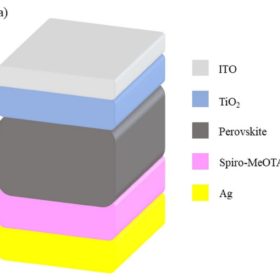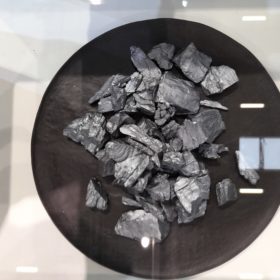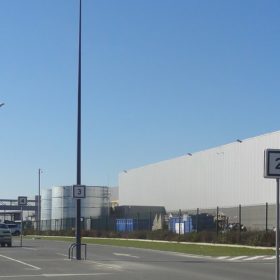Natural-born p-doped material for pervoskite solar cells
Researchers in South Korea have found that molybdenum ditelluride could increase carrier generation in perovskite solar cells. They simulated a cell with a perovskite absorber and a layer made of the new material, and determined that its efficiency could exceed 20%.
Scientists identify molecules for potential use in redox flow batteries
Scientists at the Dutch Institute for Fundamental Energy Research (DIFFER) have set up a database of 31,618 molecules that could potentially be used in future redox flow batteries. They used artificial intelligence and supercomputers to identify the properties of the molecules.
Tokyo preparing mandatory PV requirements for new buildings, homes
The Tokyo municipal authorities are working on new regulations to make solar installations mandatory for new homes with total rooftop areas of more than 20 square meters, and for buildings with rooftops smaller than 2,000 square meters.
China launches industrial silicon futures
The China Securities Regulatory Commission (CSRC) has given the green light to the trading of industrial silicon futures on the Guangzhou Futures Exchange. The move could give polysilicon manufacturers the opportunity to hedge against fluctuating silicon metal prices.
Montenegrin utility reports high demand for solar rebate program
Elektroprivreda Crne Gore (EPCG), a utility in Montenegro, said that it has received about 14,000 requests to secure rebates covering up to 20% of rooftop PV system costs. The program is designed to facilitate the deployment of 70 MW of solar capacity.
Panasonic unveils vehicle-to-home system for PV-powered homes
Panasonic claims that its new vehicle-to-home system can increase the self-consumption rate of residential solar and storage capacity to 90%.
SND to open 1 GW factory for TOPCon solar modules in South Korea
SND has announced plans to build a new factory in Gwangju, South Korea. It will also produce panels with an unspecified tandem technology. It plans to open the factory in 2025.
Amazon to build 300 MW of hybrid wind-solar capacity in India
Amazon says it wants to deploy two hybrid wind-solar facilities in India.
US government calls for continued tariffs on solar imports
A new US government ruling is a mistake that the solar industry will have to deal with for the next several years, according to a solar trade group CEO.
Weekend read: Shining magnate
Mining magnate Andrew “Twiggy” Forrest is the founder and executive chair of Australian iron ore producer Fortescue Metals Group. The company has announced an ambitious $6.2 billion decarbonization strategy and its Fortescue Future Industries subsidiary has rapidly become a global player in green hydrogen, along with a host of other energy transition technologies. Whether it is pushing to decarbonize mining, hashing out headline-making green energy deals, or using the popular “Rick and Morty” cartoon to educate people about the potential of green hydrogen, Fortescue and its shining magnate are talking the talk. But can they walk the walk? Blake Matich reports.










